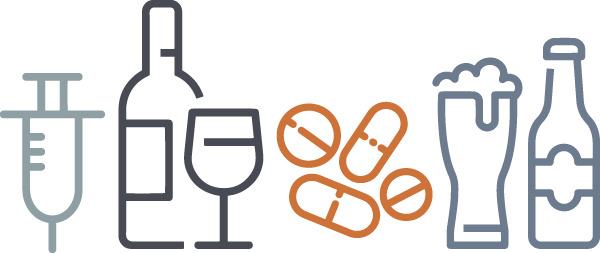
- HOME
- ABOUT US
- WHAT WE DO
- SUBSTANCE
USE PREVENTION - NUTRITION
EDUCATION - HEALTHY FOODS
FOR THE COMMUNITY
- SUBSTANCE
- HOW WE CAN HELP
- NEWS & EVENTS
- GET INVOLVED
Blog
May 01, 2023
Getting Personal

As with many other mental health conditions, the individual struggle with Alcohol Use Disorder (AUD) is often framed as a matter of personal choice and willpower. A person’s decision to get well will always be a powerful ingredient in their journey to recovery, but that does not mean that desire alone is enough to escape the mental pathways that lead to substance use disorder. Organizations like Alcoholics Anonymous have long known this, and practiced group recovery methods that work for many people.
However, far more people struggle with AUD than ever seek treatment for it, and those who do often experience different results from the same type of treatment. There is no one-size-fits-all approach to treating AUD.
Recent news coverage has spotlighted drugs such as methadone and buprenorphine that are used to treat Opioid Use Disorder. What’s less known is that there are three FDA approved medications that can help treat AUD. Each of these drugs works differently, and their effectiveness is not the same for everyone.
The three drugs are Disulfiram (Antabuse), Naltrexone (Revia or Vivitrol), and Acamprosate (Campral). Each of them operates in different ways.
Disulfiram causes an uncomfortable physical reaction when the user drinks alcohol. This helps the habitual drinker form new negative associations with alcohol and break the cycle of use. Naltrexone is also meant to break the cycle of use by suppressing the good feeling that alcohol creates, taking away the emotional reward that is associated with its use, which should eventually curb cravings. Naltrexone is approved as an oral medication (Revia) and as a monthly injection (Vivitrol).
Acamprosate is primarily used to treat AUD after active use has stopped. This drug is taken orally and is typically prescribed in addition to counseling and lifestyle changes. It helps reset brain chemistry—which is altered by long term alcohol use—and enables the patient to sustain long term recovery.
None of these drugs address the withdrawal symptoms faced by those with AUD, so other medications may also be prescribed to treat various co-occurring psychiatric disorders such as depression and anxiety, or any number of physical issues that may arise due to withdrawal or long-term use.
None of these drugs will easily cure Alcohol Use Disorder, and they all still require important behavioral and psychological changes on the part of the individual, but for some people these medicines can make a huge difference in moving beyond alcohol use. Advances in neurology and genetics could soon bring us even more exciting treatments, but we need better education and more cultural understanding to support that innovation.
More people need to know that these treatments are available. AUD is a medical condition with both psychological and physical components, so it is good to consider medication as one way to treat it. But alcohol use can affect us in different ways, and no one method of treatment is going to work for everybody. Individuals should work with primary care providers and other members of their support network to determine their own best course. We all need a personalized pathway to health and recovery, and we deserve to know about all of the available options.
 MCD Global Health
MCD Global Health